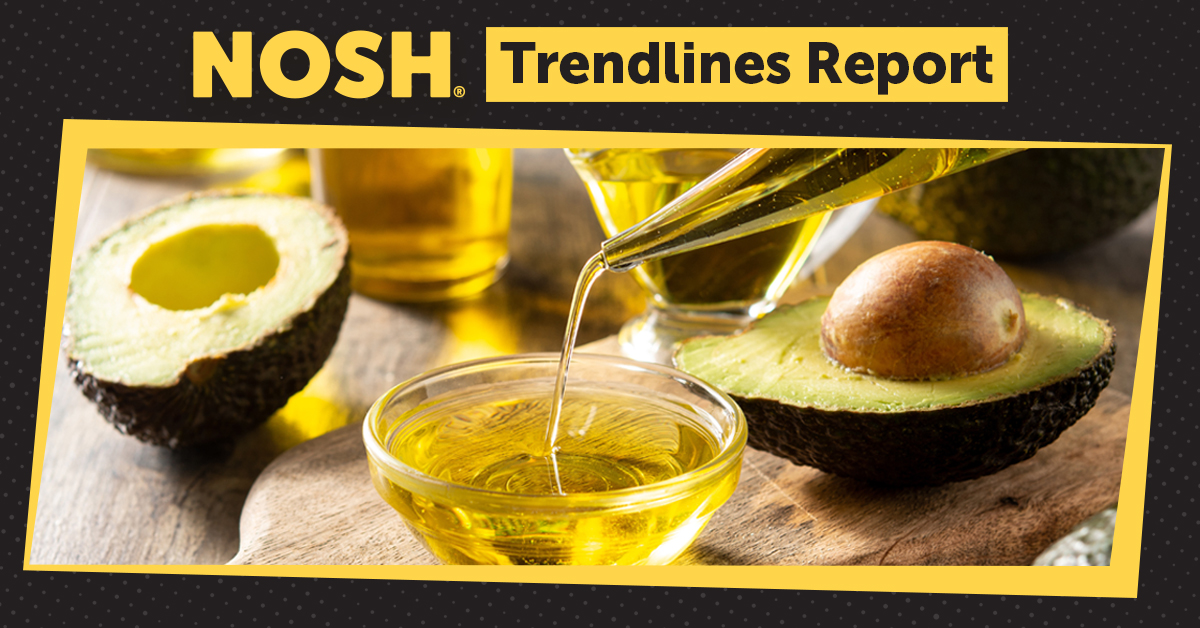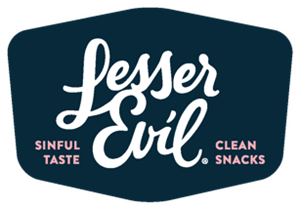Inside the Movement Against Seed Oil

You operate in a dynamic world, increasingly transforming in step with consumer preferences and economic upheaval. We are here to help you navigate it. Presenting the Nosh Trendlines Report, a series of informative articles on the latest evolutions – or revolutions – changing operations, retail distribution, product formulation, marketing and more. If you’re sensing a major shift in your business, let us know – chances are, you aren’t the only one.
Call them “The Hateful Eight”: canola, corn, cottonseed, soybean, sunflower, safflower, grapeseed and rice bran oils. This year, they’re on not-Wanted posters everywhere – rightly or wrongly – and are being denounced by wellness influencers across social media as “the worst food for your body,” “horrible for humans,” “toxic” and “literally ruining everything.”
How did seed oils become the dietary demon du jour? And is a seeming rush to reformulate among a handful of brands justified?
Anti-seed oil advocates claim consumption is linked to chronic health conditions due to an imbalanced ratio of omega-6 and omega-3 fatty acids that is believed to cause systemic inflammation in the body. Critics also point to the use of chemicals including petroleum-based solvent hexane in the processing of seed oils as harmful to one’s health.
The Clean Oil Crew formed two years ago as a coalition of brands dedicated to raising awareness about the perceived dangers of industrial vegetable and seed oils while touting the environmental and nutrition benefits of butter, ghee, olive oil, avocado oil, coconut oil and nut oils. Among companies joining the cause are Capello’s, Daily Crunch, Jackson’s, Barnana, LesserEvil and A Dozen Cousins.
Also on board is baby food brand Serenity Kids, which posted in March a bloggy manifesto on its website detailing “the dark truth about industrial seed oils.” While the American Heart Association deems canola oil, sesame oil and sunflower oil as healthy options, the brand asserts those ingredients contribute to “inflammation and disease” and are full of “damaging free radicals.”
Restaurants are fueling the fire as well: Salad chain Sweetgreen last fall removed sesame and sunflower oils from its menu in favor of extra virgin olive oil, and burger brands Shake Shack and Hopdoddy began using Zero Acre Farms’ cultured cooking oil instead of soybean oil.
It’s the kind of ingredient remodeling that might pay off, experts say.
“Products reformulated with alternative oils like avocado oil and olive oil can improve product perceptions, making a higher price point more acceptable to consumers,” said Julia Mills, analyst for U.S. Food and Drink Reports at Mintel. “While explicitly stating ‘no seed oils’ on the packaging may only attract a niche audience, emphasizing the use of alternative oils or highlighting health benefits such as ‘low saturated fat’ could appeal to a wider market.”
It’s still novel: According to Mintel data, product launches featuring “made with olive oil” claims grew by 150% and those with “made with avocado oil” claims surged by 825% between 2019 and 2023, yet “these alternatives still represent a very small percentage of overall launches, indicating that while there is some movement, it remains highly minimal,” Mills said.
She said she has observed “occasional reformulations with non-seed oils in categories such as salty snacks, baby food/snacks, condiments, dips, salad dressings, ready-to-eat meals, and plant-based protein alternatives.”
Hero Bread this year announced a switch from canola oil to olive oil in its core line of low-carb bakery products. Founder Cole Glass told Nosh in February “we listened to our consumers… and they were very instructive about the preference to get away from seed oils.”
For emerging natural and specialty brands, Mills said reformulating “can be effective in building greater trust and transparency with consumers who are more concerned with health and production processes.”
“However, for the majority of brands, it doesn’t make sense to invest the time, effort and money in reformulating with other oils,” she added, noting only 22% of consumers claim to avoid canola oil and 20% avoid sunflower oil.
“The current aversion to seed oils will likely be a passing fad that will eventually give way to another health concern or ingredient criticism,” she said.
But Scott Dicker, senior director of market insights at SPINS, expects the trend will continue to gain traction in the natural channel and beyond, suggesting major brands and retailers may eventually join the push away from seed oils.
“This is one of the TikTok trends that really has legs,” he said.
Read more: Nosh Trendlines Report
Thanks for reading! Our five-part series is designed to help you navigate a dynamic operating environment. Click the links below to read more.




















